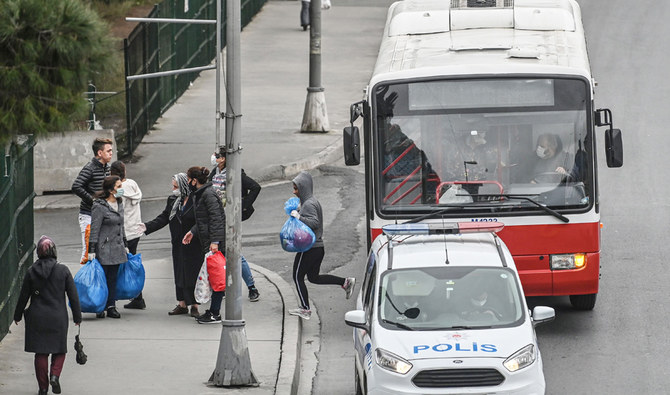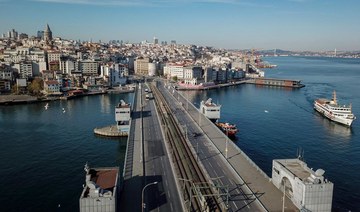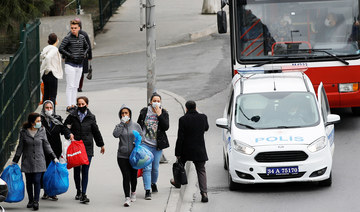ANKARA: Turkey has been criticized for new legislation that allows the mass release of inmates because it excludes journalists, academics, activists and political prisoners.
The legislation is aimed at reducing overcrowding and avoiding the spread of coronavirus. It affects around a third of Turkey’s prison population, or around 90,000 inmates.
The European Commission was among those to condemn Turkey. “We regret that the Turkish authorities excluded the early release of many inmates held in pre-trial detention or convicted for nonviolent offenses: Lawyers, journalists, politicians and human rights defenders,” it said on Friday. “This underlines the arbitrary treatment of their cases.”
Some of Turkey’s most notorious criminals were released a day after the legislation was adopted, but the continued imprisonment of others has disappointed European officials.
The European Parliament’s rapporteur on Turkey, Nacho Sánchez Amor, and the chair of the European Parliament’s Delegation to the EU-Turkey Joint Parliamentary Committee, Sergey Lagodinsky, described the legislation as “a great disappointment.”
“We had hoped that the Turkish Parliament would adopt a fair, responsible and nondiscriminatory law that would save lives from being lost in overcrowded Turkish prisons,” they said.
The introduction of a last-minute amendment - exempting those imprisoned for breaking National Intelligence Agency laws from the amnesty - was criticized by human rights activists. It is seen as an attempt to prevent the release of four journalists who are behind bars for exposing the identity of Turkish intelligence officers in Libya, as well as to intimidate journalists who are critical of the government.
The amendment prevents dissident journalists Baris Pehlivan, Murat Agirel, Hulya Kilinc and Baris Terkoglu from applying for their release.
Last month the Turkish website OdaTV released a story and showed footage of an intelligence officer’s funeral in the western city of Manisa. The Information and Communication Technologies Authority banned access to the website for a while.
NUMBER
90,000 Inmates, or around a third of Turkey’s prison population are affected by the spread of coronavirus. The legislation is aimed at reducing overcrowding in the prisons.
Agirel released the identities and photos of some Turkish nationals who were killed in Libya after being deployed as part of a security and military cooperation deal between the two countries.
Kazim Yigit Akalin, the lawyer representing Terkoglu and Pehlivan, said it was probably the first time in Turkish history that journalists were facing trial for contravening the laws of the National Intelligence Agency.
“The Constitutional Court should give its decision regarding this issue on the basis of the principle of equality, but considering the current composition of that top constitutional body, it would be too optimistic to have a favorable ruling,” he told Arab News.
Keeping journalists and politicians behind bars would not contribute to social harmony, he added.
The European Court of Human Rights has ordered Turkey to release Kurdish-origin politician Selahattin Demirtas, saying his pre-trial detention was a political act and that his freedom of expression had been curtailed. He has high blood pressure and was taken to hospital recently after collapsing in his cell.
Amnesty International and Human Rights Watch have called on the government to consider releasing older prisoners as well as those with serious medical conditions.
















